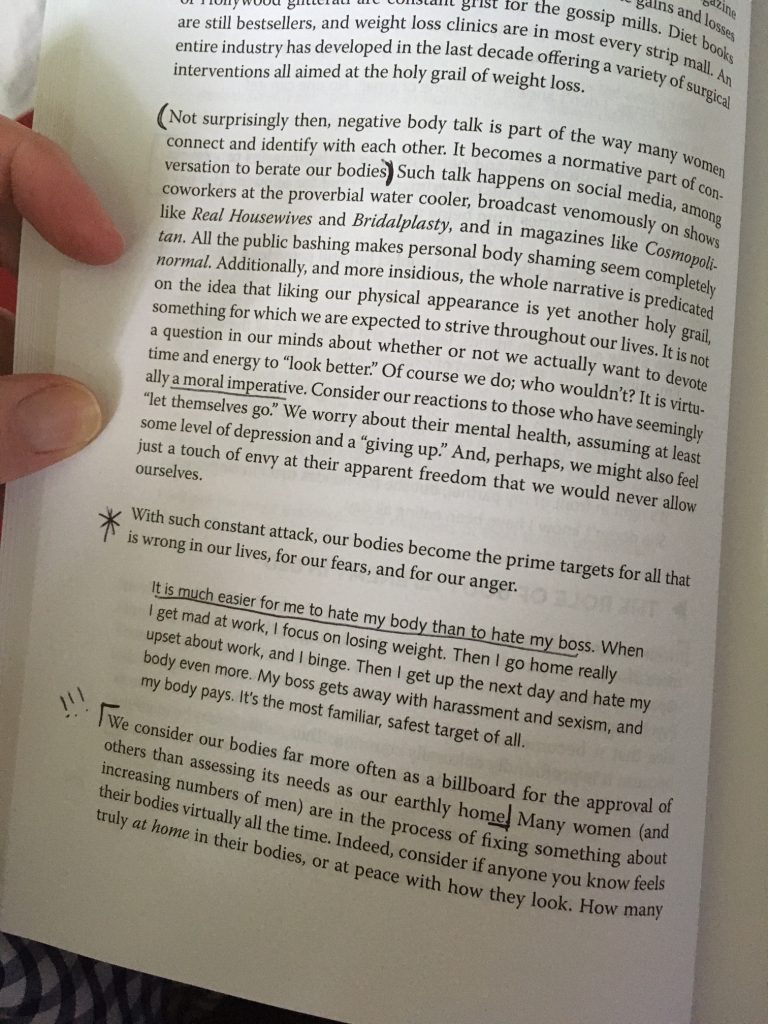“We consider our bodies far more often as a billboard for the approval of others than assessing its needs as our earthly home […] How many people do you know who make decisions about their body’s needs based on well-being or delight rather than appearance?”
I’m participating in a book club hosted by Center for Discovery, and I literally stopped reading (and highlighting) Binge Eating Disorder: The Journey to Recovery and Beyond by Amy Pershing with Chevese Turner so that I could come and share the above quote with you. Not just because it is SO TRUE but also because I need you to know why I do what I do:
I am not anti-diet because diets don’t work, I am against dieting because I’m against eating disorders.
While it’s true that food restriction with the intention to lose weight has a 95% failure rate, what’s even more disturbing to me is that “35% of ‘occasional dieters’ progress into pathological dieting, (disordered eating) and as many as 25%, advance to full-blown eating disorders.”
Years ago a random Craigslister came to my house to pick up some old hay bales for his worm farm. As he was loading up his truck he asked me what I did, and what came out of my mouth surprised me: “I want to help people in eating disorder recovery.” The man laughed in my face and said, “Good luck, those people are hopeless.”
Little did I know then that not only did my declaration plant a seed within me that would sprout and blossom over the next five years, but that the man’s response would also become a weed for me to tackle…

I cannot tell you how many business coaches, family members, close friends, and even strangers on the internet have told me to market my message as a weight loss strategy in order to be more profitable in my desire to reach the masses. And with each invitation, I’ve refused. I WILL NOT BECOME PART OF THE PROBLEM I’M TRYING TO HELP SOLVE.
Deep down in my heart, I know I am meant to support eaters in honoring the needs of their earthly home. Regardless of what wellness culture or worm men think, food freedom is possible! Because all bodies are good bodies and deserving of hope.
I’m anti-dieting because I am pro-living.
Do you know what it’s like to feel truly at home in your body? I do. Not always. Some days are easier, or harder, than others. But it is doable and absolutely worth it. In the meantime, remember that your body is hopeful and so are you ♥


